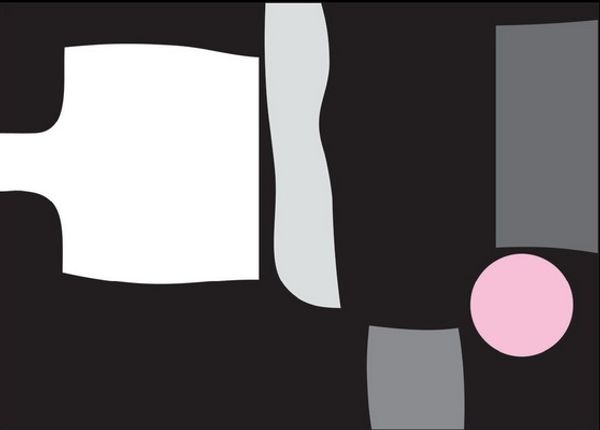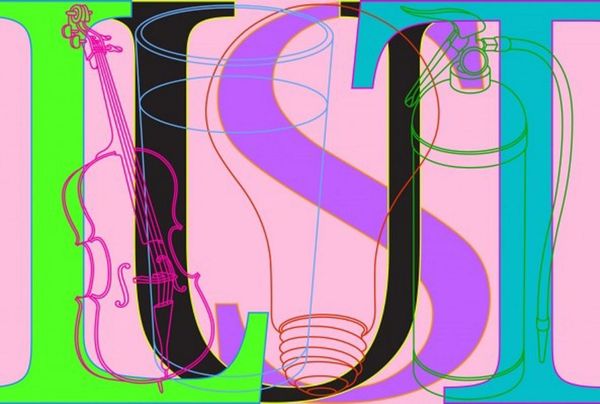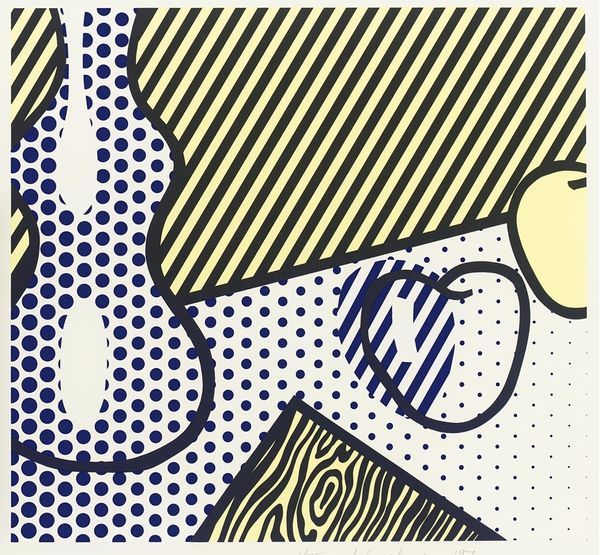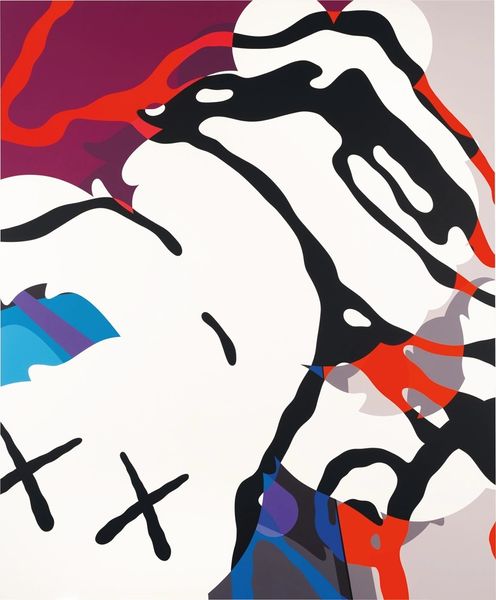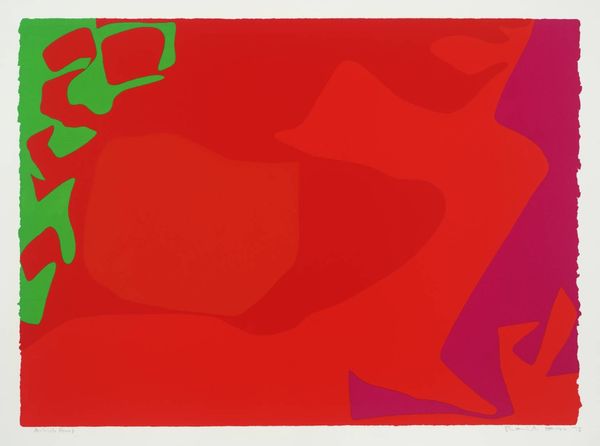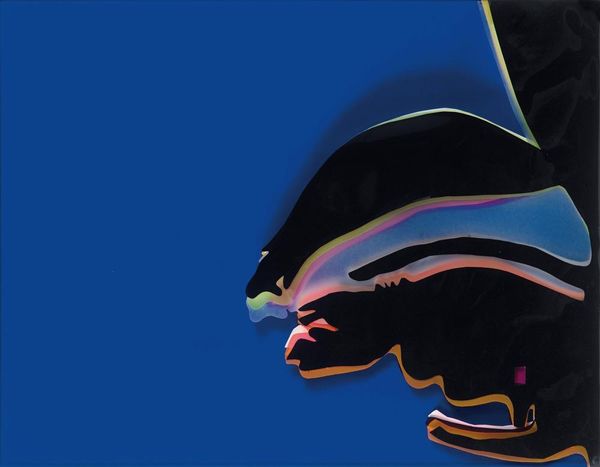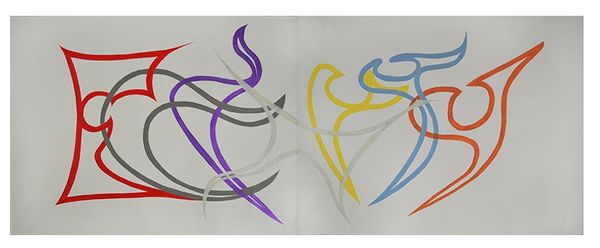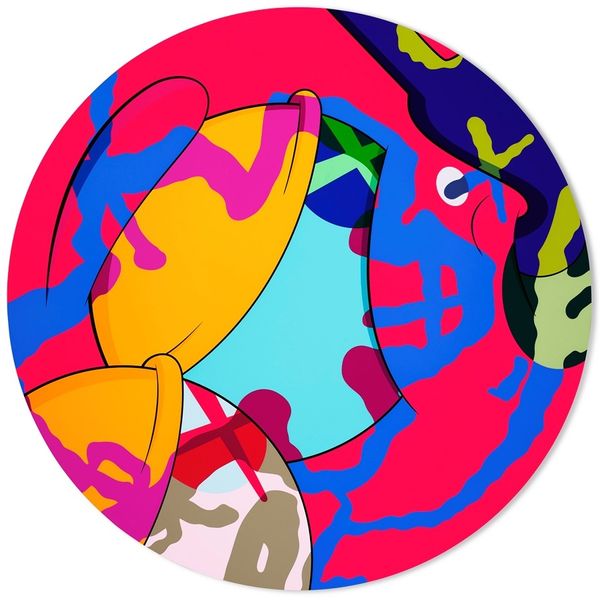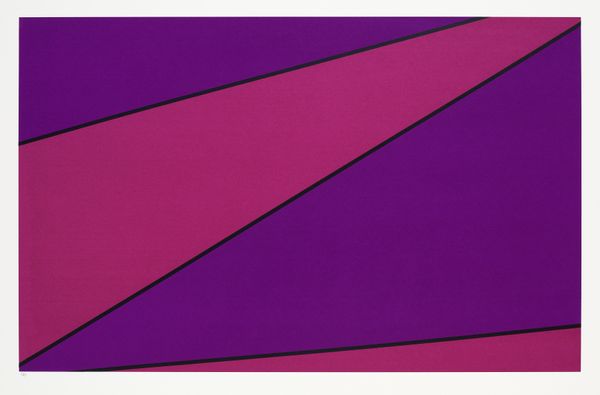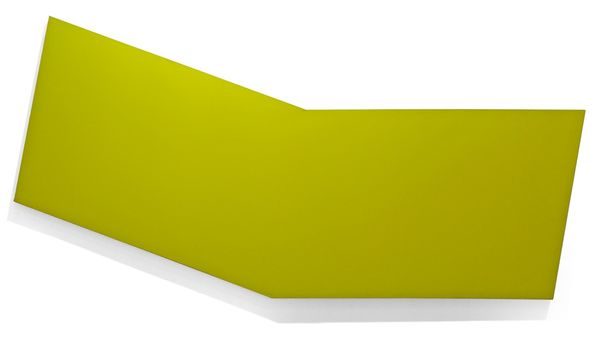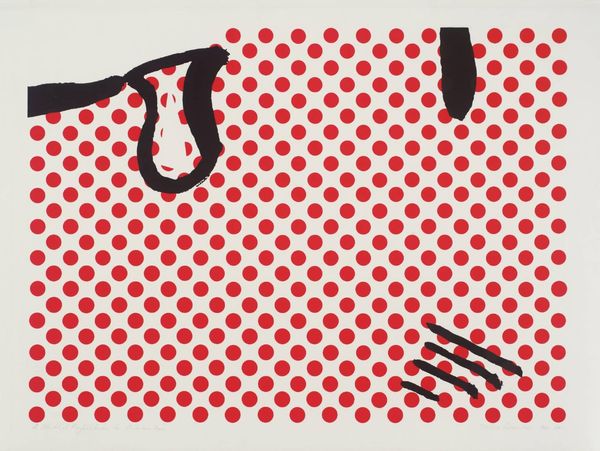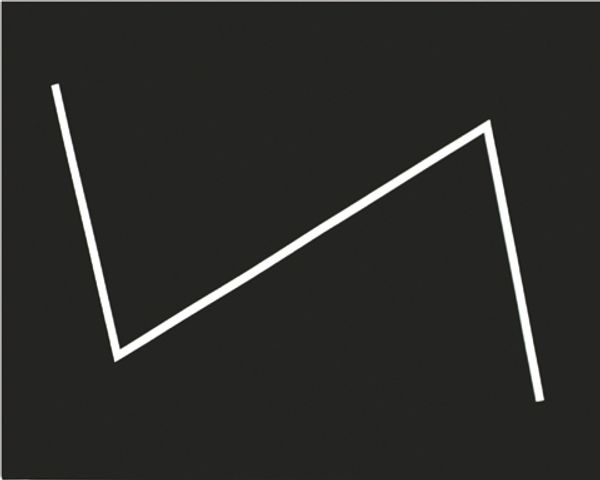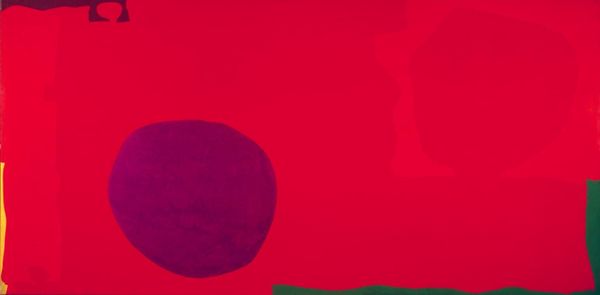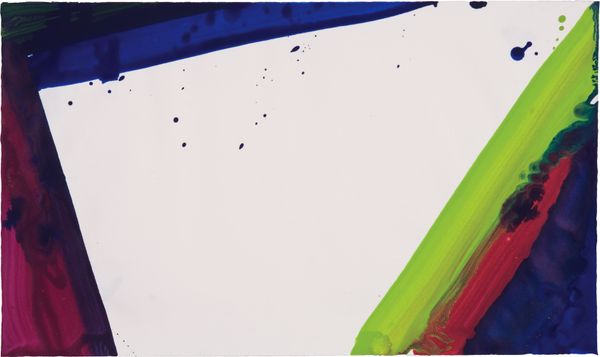
Copyright: Gerwald Rockenschaub,Fair Use
Editor: Here we have Gerwald Rockenschaub's "Untitled" from 2002, apparently rendered in ink. The flat planes of colour and hard edges create a kind of playful tension. What catches your eye when you look at this, from your perspective? Curator: Considering Rockenschaub’s engagement with the aesthetics of electronic music and club culture, I'm interested in the methods he employs here. We should note the use of ink – a mass produced and globally distributed substance– to mimic digital art's sleek, minimalist aesthetics. It is a clear attempt to dematerialize art. This blending of high art and popular culture really invites questions. Editor: Dematerialize art, how so? Is it because it's so simple and flat? Curator: Exactly. He deliberately uses accessible, commercial materials to undermine traditional ideas of artistic skill. Rockenschaub questions art's traditional auratic status and uniqueness, blurring the line between creation and replication. Think about the relationship of these graphic shapes and lines, these manufactured colors: this could just as easily be an advertisement, a schematic, or the background on a web page. What labour is valued and made visible here, versus what's being concealed? Editor: So it's less about the image itself and more about how it was made, or could have been made? It definitely has that "desktop publishing" feel. Is he making a statement about consumerism? Curator: Yes, this aesthetic mimics commercial design. By appropriating its visual language, he provokes us to consider the economic systems which inform our understanding and consumption of art. To really interrogate this work, we might want to explore Rockenschaub's other installations as well as the economics and sociology of Austrian techno culture in the late 90s. Editor: That gives me a completely different way to think about abstract art. It is not just shapes, but how and why the artist put them together. Curator: Precisely. By analyzing the material processes and socio-economic context of production, we gain new perspectives, shifting value away from artistic originality to broader societal implications.
Comments
No comments
Be the first to comment and join the conversation on the ultimate creative platform.
